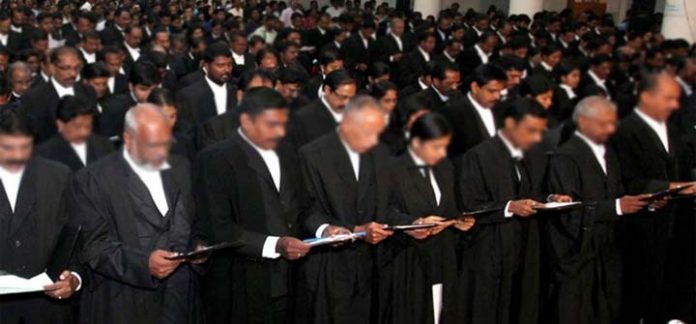This article is written by Srishti Sinha, from the Institute of Law, Nirma University. This article deals with an overview of the Advocates Act and focuses primarily on Section 16 of the Act.
Table of Contents
Introduction
The fight for power and supremacy has divided the world into various parts but there is no one who can attain absolute power or ownership. However, there are some people who are referred to as great or seniors in their respective fields. In earlier times, the experience was directly proportional to the age of a person, i.e., the older a person is, the more experience he has. In today’s time, there is no age for seniority but it is the essential skill, knowledge, quality, and ability of a person that matters.
The same is the case of lawyers in the Supreme Court or the High Courts. The main concept behind this honor is to acknowledge their better ability and status at the bar. The goal is to thank them for their contributions to the legal profession and, more broadly, to the judicial system. The Advocates Act, 1961 empowers the Supreme Court and the High Courts to designate lawyers at the senior position. The Act does not officially state any advantage to these senior lawyers but the respect and attention that such senior attorneys receive at bars and from the bench in courtrooms, on the other hand, reflects their standing. They also benefit financially since clients are willing to pay the premium fees. Further, these senior advocates are selected based on the opinion of the Supreme Court and the High Courts which do not contain any objective criterion for selecting the candidates. This classification of lawyers under Section 16 of the Advocates Act has had the unintended consequence of undermining the bar’s overall consistency.
Section 16 of the Advocates Act
Section 16 of the Advocates Act states the following:
(1) There shall be two classes of advocates, namely, senior advocates and other advocates.
(2) An advocate may, with his consent, be designated as senior advocate if the Supreme Court or the High Court is of opinion that by virtue of his ability,
[standing at the Bar or special knowledge or experience in law] he is deserving of such distinction.
(3) Senior advocates shall, in the matter of their practice, be subject to such restrictions as the Bar Council of India may, in the interests of the legal profession, prescribe.
(4) An advocate of the Supreme Court who was a senior advocate of that Court immediately before the appointed day shall, for the purposes of this section, be deemed to be a senior advocate:
[Provided that where any such senior advocate makes an application before the 31st December 1965 to the Bar Council maintaining the roll in which his name has been entered that he does not desire to continue as a senior advocate, the Bar Council may grant the application and the roll shall be altered accordingly.
According to Section 16, there are two types of advocates: senior advocates and other advocates. If the Supreme Court or a High Court believes that an advocate’s talent, standing at the Bar, or unique knowledge or expertise in law merits such designation, the advocate may be named as a senior advocate with his/her permission. It should be noted that there are no ethical parameters or criteria for deciding the designation of the said advocates.
The role and duty of an advocate is to help in providing justice. An advocate works as an instrument of getting justice. Senior advocate is recognized for his/her skills, experience, knowledge, and expertise. If one is aspiring to become a senior advocate, he/she would have to work extremely hard in the field of law. However, in today’s world, hard work is not the key to success, but smart work is. Among that, one needs to work on his/her communication skills, advocacy skills, counselling skills, and have a holistic approach. Experience is one of the major factors which develops confidence and leads a person to success.
Difference between senior advocates and other advocates
- In general, a senior advocate is based and judged on age and experience in a particular legal profession. As previously indicated, it is also specified under Section 16 of the Advocates Act. While it is sometimes assumed that a young lawyer lacks experience and has little knowledge on how to approach and deal with issues, this might not always be the case.
- A senior lawyer is perceived by the general public as an older lawyer with much practice and experience, whereas a new lawyer is expected to learn a lot from the senior lawyer and he/she is also expected to master certain abilities.
- Any advocate can be granted the status of the senior advocate by the court, but only with his/her cooperation and if the court believes that it is due to his/her talent or particular knowledge of the law.
- A different code of conduct applies to senior advocates in certain circumstances. It is distinct from the work of other lawyers. For example, acceptance of legal work (drafting, pleadings or affidavits) by a senior advocate is restricted [Section 49 (1) (g)].
- A provision has been made to protect the designation of senior advocates even in the future.
From the above points, it is clear that there are differences between the standards of the two categories of advocates.
Section 16 leading towards discrimination amongst lawyers
After years of practice at the bar, advocates in the Supreme Court or the High Courts can earn the title of a senior advocate. An advocate is frequently granted this title if he or she has specific knowledge in the subject of law. They can be distinguished from ordinary advocates by the gown they wear, and they can usually demand high fees for legal services. A senior advocate must adhere to a different code of ethics that restricts him or her from accepting certain types of legal work, such as drafting, drawing pleadings, or affidavits.
In a recent interview, Mr. Nariman said that “Section 16 (2) of the Advocates Act, 1961 which primarily is concerned with the designation of Senior Advocates based on the opinion of the Supreme Court or the High Courts – is violative of Article 14 of the Constitution (right to equality) and should, therefore, be deleted”. He focused and elaborated that since there are no objective criteria for the selection of the advocates who can be promoted to senior status, therefore, it is purely a selection made by the voting among the judges of a court. Also, it has been observed that there are many instances when the designated senior advocates did not deserve the position. Further, if we go by the fact of seniority on the basis of the number of years spent in practice then, after 20-30 years of practice, every lawyer will be entitled to the designation of the senior post.
The same criteria, like Section 16 of the Advocates Act, may be found in the rules formulated by several High Courts and the Supreme Court of India. The Supreme Court Rules 2013, Order IV Rule 2(a), states: “The Chief Justice and the Judges may with the consent of the advocate. designate an advocate as senior advocate if in their opinion by virtue of his ability, standing at the Bar or special knowledge or experience in law the said advocate is deserving of such distinction.”
Thus, the Full Court, which includes the Chief Justice and the Judges, has the authority to appoint an advocate as a senior advocate. As a result, it appears that when petitions for designation are received, they are circulated to all judges, and those who receive recommendations from at least five judges are sent to the Full Court for a vote and are typically designated the post of senior advocates . As a result, the process is completely opaque, and there is no way of knowing whether any of the criteria guiding Order IV Rule 2(a) of the Supreme Court Rules and Section 16(2) of the Advocate Act is taken into account because there are no minutes of meetings detailing the evaluation or discussion of applications. Moreover, the applicants are not interviewed, and the reasons for non-designation are not communicated. While the criteria for designation have been stated as standing at the Bar, special knowledge, or experience in law, it is unclear how these are evaluated, resulting in arbitrariness, favouritism, nepotism, and the exclusion of advocates with specialized/domain experience in the process of senior advocate designation.
Conclusion
To conclude, it is erroneous to believe that popularising judicial institutions or the legal profession, in general, is a good idea. It is all about making them more democratic. Democracy is defined as the freedom to select among the capable. A lawyer’s job is pretty conventional just like any other career. Section 16 of the Advocates Act, which in some or the other way discriminates between the lawyers, is opaque as there is a lot of ambiguity between the words and thus, there is a need to revisit the provision.
References
- https://www.vkeel.com/blog/how-senior-advocates-in-the-supreme-court-are-different-from-other-advocates/
- https://inbaviewpoint.org/history-of-legal-profession-in-india-its-future-today/
- https://www.legalserviceindia.com/legal/article-2090-senior-advocates-section-16-advocate-act-1961.html
- https://www.theleaflet.in/designation-of-senior-advocates-a-case-for-reform/
LawSikho has created a telegram group for exchanging legal knowledge, referrals and various opportunities. You can click on this link and join:
https://t.me/joinchat/J_0YrBa4IBSHdpuTfQO_sA
Follow us on Instagram and subscribe to our YouTube channel for more amazing legal content.
 Serato DJ Crack 2025Serato DJ PRO Crack
Serato DJ Crack 2025Serato DJ PRO Crack











 Allow notifications
Allow notifications


